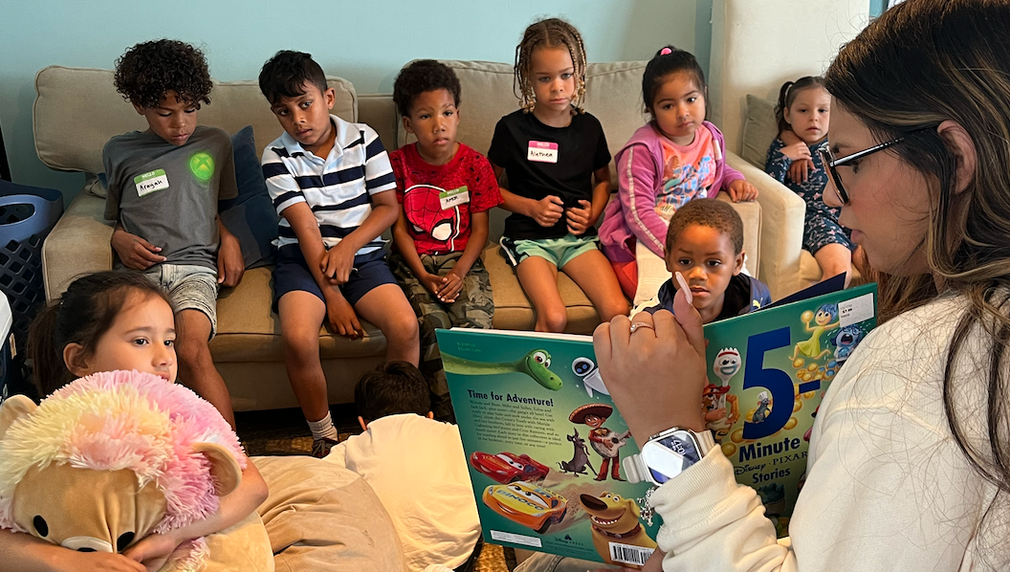Renewed Roots for unhoused families
To fight the growing problem of family homelessness caused primarily by domestic violence, our team of trauma-informed care managers will provide two years of shelter and wraparound services to unhoused families in the South Bay.

What is the primary issue area that your application will impact?
Affordable housing and homelessness
In what stage of innovation is this project, program, or initiative?
Expand existing project, program, or initiative (expanding and continuing ongoing, successful work)
What is your understanding of the issue that you are seeking to address?
As the homelessness crisis across Los Angeles continues to worsen, shelters are increasingly at capacity. Unhoused families face a particularly difficult road, as most shelters do not accept family units due to gender or age restrictions.
Furthermore, the majority of families we serve are headed by single mothers who are domestic violence survivors and are in heightened financial and emotional crisis. Though their safety and shelter needs are often addressed within the first 6-12 months of care, goals like financial independence, stable housing and emotional well-being can require up to five years.
Children face the worst effects of the homelessness crisis, suffering from mental health problems, underperformance in school, bullying, sexual victimization, and alcohol and substance abuse at a greater rate than their peers. Effects worsen when domestic violence is present, and when children are separated from their families as a result.
Describe the project, program, or initiative this grant will support to address the issue.
Family Promise of the South Bay helps unhoused families stay together, regain stability, and remain integral members of their community. We are one of only two shelters in our area serving unhoused families, and we maintain a commitment to family cohesion — though being unhoused is damaging to children, being safely rehoused with one’s family ameliorates the effects. The Renewed Roots program will provide unhoused families with two years of shelter, intensive care management, therapy and child-focused support, with a particular focus on stabilizing families who are escaping domestic violence. Over two years, Renewed Roots will prepare families to reintegrate into their community with increased economic, emotional and social stability. We will shelter families in studio apartments at our Respite Center or with one of our 26 partner organizations. While staying with us, families will be assigned a case manager who will guide parents to meet their housing, employment, and parenting goals. We will also provide a host of trauma-informed services including: parenting classes, therapy, a children-specific case manager, a free six-week summer camp, and life skills classes. Renewed Roots will also reunite families who have been separated by child protective services due to homelessness and domestic violence. With families in this situation, we will help parents work towards reunification goals, advocate on their behalf with DCFS, and commit to providing shelter after reunification.
Describe how Los Angeles County will be different if your work is successful.
Los Angeles county is one of the most diverse regions in the country and also one of the most inequitable. Children born in affluent neighborhoods have better access to schools, healthcare, and opportunities than children in neighboring low-income communities. This problem — known as geographic inequality — has worsened in recent years. More Angeleno families are falling into poverty and homelessness, and the economic gulf between rich and poor areas is widening. Families are increasingly at risk of being pushed out of the diverse South Bay. Though the median income in our region is almost 20% higher than LA County’s, 16% of the population lives in poverty. The unhoused population is growing rapidly, and is disproportionately Black and Latinx. By restabilizing South Bay families during moments of crisis and ensuring they are housed in our region, Renewed Roots will fight against geographic inequality and help ensure the South Bay remains economically and culturally diverse.
What evidence do you have that this project, program, or initiative is or will be successful, and how will you define and measure success?
We define success for our ongoing shelter program by the percentage of families who remain in stable housing for at least two years after leaving. Thus far, we have maintained an 85% success rate. For Renewed Roots —which will extend our existing shelter program to two years and add additional services, including a children’s case manager— we will measure success with the following indicators:
The percentage of participating families who exit to secure housing and stable employment for up to 2 years after graduation (goal: 85%)
The percentage of adults in participating families whose mental health improves as measured by the GAD-7 (goal: 90%)
The percentage of kids in participating families whose academic standing improves (goal: 80%).
Percentage of kids in participating families whose mental health improves, measured by the GAD-7 (goal: 90%)
Approximately how many people will be impacted by this project, program, or initiative?
Direct Impact: 12.0
Indirect Impact: 100.0